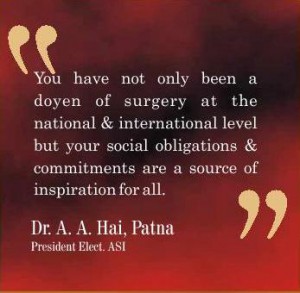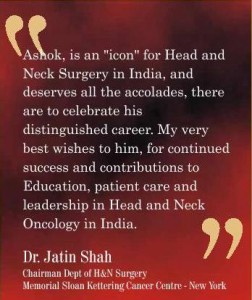VALUES IN HEALTHCARE :
A spiritual approach
personal and team development programme for healthcare practitioners
Values in Healthcare: a spiritual approach (VIHASA) is a modular training programme developed by a core team of healthcare professionals. It addresses an important gap in personal and team development by taking a fresh, values-based approach to their learning and practice.
Raising morale is to re-emphasize the importance of values in guiding practice at all levels. There are some excellent values statements produced by health care organizations, but for values to be meaningful, they must be owned at a personal level and then integrated into our work.
This facilitated programme consists of eight modules to explore individual values in depth and how they relate to our personal lives and professional practice. Each module takes one day to complete and utilizes a unique blend of experiential group exercises, with time set aside for personal reflection and group discussion.
Self-enquiry is encouraged through personal reflection to identify their own values and discover how their insights can enhance their personal lives and revitalize their work. Movement-based exercises offer natural breaks and opportunities to experience values in a personal way.
THE EIGHT MODULES
Each module explores one theme in depth, from personal and professional perspectives. Exercises have been carefully sequenced to offer incremental/progressive insight, so that participants can build on their own learning and experiences. The eight modules cover the following themes:
Introductory Module: Building Resilience – Practical & positive response to stress & burnout
Module 1: Values – Gain strength through motivation
Module 2: Peace – Benefit from being calm
Module 3: Positivity – Harness the power of thoughts
Module 4: Compassion – Release healing energy
Module 5: Co-operation – appreciate the wisdom of teams
Module 6: Valuing yourself – Sustaining the carer
Module 7: Spirituality in healthcare – Spiritual care in practice
KEY PRINCIPLES
Traditionally, healthcare professionals’ training has been predominantly about acquiring knowledge and learning practical skills, with less time spent on communication and interpersonal skills, and even less time, if any, on self-care.
Values in Healthcare uses a fresh creative approach, with an emphasis on self-care and support. Three key principles have been adopted to support this training approach:
1) Physician heal thyself
Professional care givers are placed at the centre of healthcare delivery; self-care is therefore integral to good patient care. If care givers nourish and support themselves and pay attention to personal development, their morale improves and the sense of purpose and altruism with which they set out in their careers, is restored.
2) Learning through experiencev
Values in healthcare are best understood and explored through direct experience, so the programme provides facilitated, experiential learning, rather than didactic instruction, with time for silence, visualization and sharing in a supportive environment.
3) Relevance to work
The learning experience should be relevant to participants’ work and lives; there is therefore an emphasis on reflection, action planning and evaluation, and a commitment to ongoing learning.
The programme includes learning outcomes for each exercise which indicate how professionals can improve their coping skills, raise morale and restore a sense of purpose, helping to prevent problems of burnout, sickness absence, and staff retention.
A SPIRITUAL APPROACH
In the health care professions there are many different methods used to teach the skills and art of each discipline. Traditionally, formal lectures, personal study, tutorials and practical experience are used alongside apprenticeship learning. The Values in Healthcare approach requires sharing and learning in small groups with exercises and activities which are mainly experiential. In order to emphasize and explore the essential connection between people’s humanity and their experience of living and working, the Values in Healthcare programme introduces participants to seven tools for learning, called ‘spiritual tools’. These tools provide the means by which participants engage with inner exploration and apply their insights to a wide range of situations and problems. They are briefly described below.
THE LEARNING TOOLS
Meditation - in this programme involves participants in being silent and using the time to learn about their mind and their thoughts.
Visualization - involves using the mind to create positive images which can help to address past negative experiences and associated feelings of failure or frustration and create aims for the future. Visualization exercises can help to build participants’ self-respect and positive attitudes.
Reflection - is much used within healthcare training. ‘Reflective practice’ involves learning from past experience to evaluate concerns and improve clinical practice. The spiritual approach to reflection involves participants in taking a calm, detached view of themselves, rather like an observer, so that they can examine their own emotional reactions and release them. New and creative ways of re-approaching situations can then be considered from a place of clarity.
Listening - is an essential skill in health care, and the quality of how we listen can bring benefit not only to those being listened to, but to ourselves as listeners. Listening as a spiritual tool involves participants in deep listening and requires inner peace. Only then can full attention and focus on what the person is saying be given, with an open heart and without judgment.
Appreciation - is an important tool in patient care, interaction with colleagues and personal life. As a spiritual skill, it values what works best in individuals and groups, drawing on existing strengths and shared values to seek solutions, rather than focusing on the problem and apportioning blame.
Creativity - encourages the discovery of new solutions. As a spiritual skill it emphasizes the premise that ideas come to us when we give ourselves silent space and drop our preconceptions. The sessions may involve taking risks by behaving outside our normal roles. However, the experience of heightened creativity and its application to problem solving will be a positive learning outcome.
Play - introduces the idea that it is legitimate to experience fun and laughter as part of the learning process. Being playful is being spontaneous and carefree, with a willingness to let go of barriers and overcome difficulties. The sense of ‘lightness’ inherent in play encourages tolerance in our listening and softness in our judgments.





